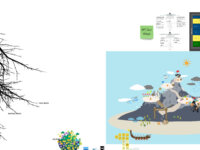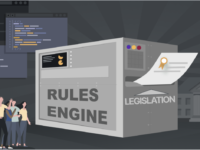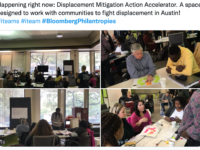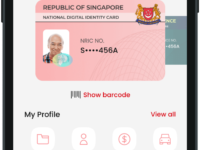Governments provide a variety of financial help to people in need, with the eligibility/entitlement rules largely defined in legislation. But understanding those rules is incredibly hard, especially when under duress. This project is a community and social sector collaboration on a public, anonymous and interactive service that helps people know their legal rights to services & to an explanation from government, built upon a world first community reference implementation of legislation as code.
Innovation Tag: Citizen Engagement
The Australian Government - Dept of Finance sponsored a Proof of Concept (PoC) that looked at how Rules as Code (RaC) might be provided as a shared utility that can be used to deliver simpler, personalised digital user journeys for citizens. RaC is the process of taking legislation and regulations and turning them into machine-readable code. It provides many benefits to citizens and government, including greater reuse, less duplication, greater transparency and accessibility of rules.
Social assistance for low-income families in Singapore are often largely premised on their needs, rather than the enterprise and creativity that families have. Empowered Families Initiative is a developmental initiative that hopes to harness the strengths and abilities of low-income families and invest in their aspirations through grants, savings matching and group support to improve their life circumstances towards better socio-economic position and well-being.
Austin has experienced rapid growth yet many underserved Austinites have found themselves forced to move when they don't want to, or experiencing homelessness. The City didn't have an anti-displacement strategy. We created a first set of anti displacement insights, accelerated community co-created anti displacement strategies, developed an interactive data tool to stimulate driven approaches, and co-created an equity tool to mitigate displacement risk heightened by its own transit investments.
As more services digitalize, there is a need for high assurance digital identity; to empower our citizens to transact digitally by providing them with a convenient and secure digital identity; to digitally enable government and businesses to digitalize their operations and capture new opportunities by providing a series of trust services in the form of APIs; and to create an ecosystem of trust so as to promote trusted data flows. Citizens, government, and businesses have benefited from Singpass.
Customer-oriented public services direct the authorities to look at citizens from their own responsibilities without taking into account a citizen’s overall life situation. A human-centric and life event -based operating model supported with the life-event service ecosystem technology enables the authorities to produce value directly in people's life events through the cooperation of other service providers in a timely and proactive manner.
Democratic Technology brings governments and citizens into the 21st century. It empowers engagement in real time on daily issues, between people and politicians in a seamless and transparent way. Using geolocation or an address entry, real verified users are shown their government representatives on their smartphones enabling direct one-to-one messaging on important events. Collected anonymized data enables evidence based decision making for the public and governments.
The Future Mentors programme is a reversed mentoring programme in which a small group of young people mentor a decision maker from their own city about the hopes, dreams, and fears of the young generation regarding the future of their city. The programme is a platform for youth in cities to get into a dialogue with the decision makers and get their concerns and wishes heard. Twenty-six cities around Europe participated in the programme in 2022.
Less than 5% of Small Business (SBs) in Australia take out formal intellectual property protection, with many small business owners putting themselves at risk due to a lack of awareness about the need for Intellectual Property, especially at the point of establishing their business. TM Embed aims to engage these small businesses at critical points of their business journey by building awareness, educating them about trade marks, and simplifying the way in which they engage with the trade ma
The Latrobe Health Assembly has undertaken a co-design process with service providers, government and people with lived experience to develop an innovative mental health cafe model for Latrobe City. The cafe has and continues to involve people with lived experience at all levels. It aims to: increase opportunities for peer support and social connection; reduce emergency department presentations for non-emergency mental health issues; and improve mental health consumer experiences and outcomes.









